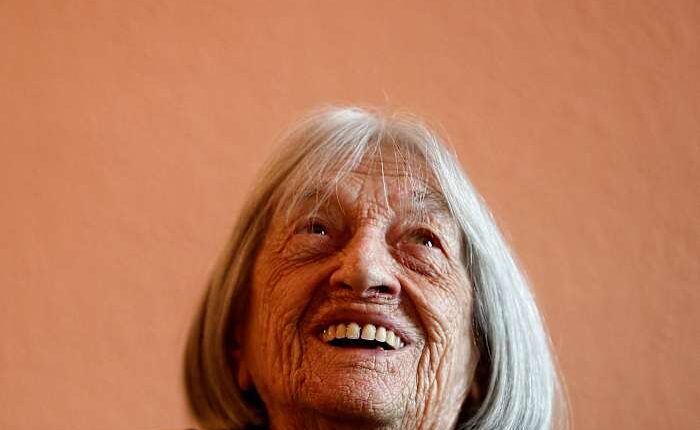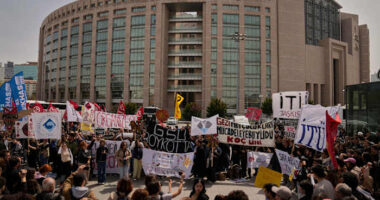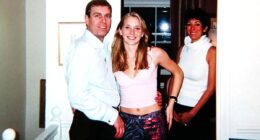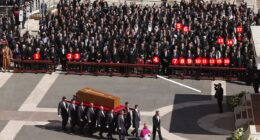
BUDAPEST – Ágnes Keleti, a Holocaust survivor and the oldest living Olympic medal winner, has died. She was 103.
According to the Hungarian state news agency, Keleti passed away in Budapest on Thursday morning after being admitted to the hospital on December 25 due to pneumonia.
She achieved remarkable success in gymnastics, earning a total of 10 Olympic medals, with five of them being gold, while representing Hungary in the 1952 Helsinki Games and the 1956 Melbourne Games. Despite enduring the tragedy of losing her father and several family members in the Holocaust, she emerged as one of the most accomplished Jewish Olympians.
Approaching her 100th birthday, Keleti expressed her gratitude for a fulfilling life, stating, “These 100 years felt to me like 60. I live well and I cherish life. Maintaining good health at my age is truly wonderful.”
Born Ágnes Klein in 1921 in Budapest, her career was interrupted by World War II and the cancellation of the 1940 and 1944 Olympics. Forced off her gymnastics team in 1941 because of her Jewish ancestry, Keleti went into hiding in the Hungarian countryside, where she survived the Holocaust by assuming a false identity and working as a maid.
Her mother and sister survived the war with the help of famed Swedish diplomat Raoul Wallenberg, but her father and other relatives perished at Auschwitz, among the more than half a million Hungarian Jews killed in Nazi death camps and by Hungarian Nazi collaborators.
Resuming her career after the war, Keleti was set to compete at the 1948 London Olympics, but a last-minute ankle injury dashed her hopes.
Four years later, she made her Olympic debut at the 1952 Helsinki Games at the age of 31, winning a gold medal in the floor exercise as well as a silver and two bronzes. In 1956, she became the most successful athlete at the Melbourne Olympics, winning four gold and two silver medals.
While she was becoming the oldest gold medalist in gymnastics history at age 35 in Melbourne, the Soviet Union invaded Hungary following an unsuccessful anti-Soviet uprising. Keleti remained in Australia and sought political asylum. She then immigrated to Israel the following year and worked as a trainer and coached the Israeli Olympic gymnastics team until the 1990s.
Copyright 2025 The Associated Press. All rights reserved. This material may not be published, broadcast, rewritten or redistributed without permission.

















